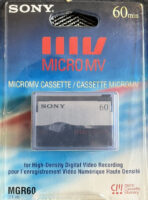Recording from the streaming services such as Netflix, Amazon, Pandora, and Hulu is strictly against the rules we agreed to when we accepted their terms. But is it legal? That’s another questions altogether. To consider that we must go back some 30 years to the Betamax Case.
In 1984 the Supreme Court of the United States ruled that the making of individual copies of complete television shows for the purpose of time shifting is fair use and does not constitute copyright infringement. This case was called Sony Corp. of America v. Universal City Studios. Sony manufactured the Betamax VCR which ultimately lost the VCR war to VHS. Nevertheless, the Betamax machine allowed ordinary people to record TV shows and movies off the air.
Universal Studios and the Walt Disney Company decided to sue the Sony Corporation because they said Sony was manufacturing a machine that could be used for copyright infringement of the shows that Universal and Disney broadcast over the air.
This court decision made it legal for anyone to record anything on broadcast TV for the purpose of time shifting. So now with a DVR or other device we can watch a copyrighted show when it is convenient for us, rather than be required to watch at a specific time. This applies to TV that is broadcast in a linear fashion, one after another. But on-demand programs like those on Netflix are not aired in a linear fashion. They are already time-shifted. You can watch them whenever you want. So the question is can you record it.
Since 2011 a company called PlayOn allows all of us to record any streaming media to your computer. PlayOn is technically considered a screen capture software. So this is how they stay legal.
As CEO Jeff Lawrence told Consumerist, PlayOn does not circumvent any digital rights management (DRM), nor does it access the encrypted stream. It works as a browser-based screen-capture program. To use it you have to set up and play a movie or show so that PlayOn can record it. So far the company has not been sued by any streaming company. But remember, if you record streaming material, you are definitely breaking the Terms Of Agreement you signed when you purchased the right to stream.
These same questions often arise in the video transfer business. Just last week a customer brought a number of jazz videos by famous musicians. Some were commercial tapes, others had been recorded at home with a VCR. I had no qualms about making DVDs from these VHS tapes because the customer had no way to view them and he had purchased them or acquired them legally. As I told him, it would, however, be illegal for him to sell copies of the3 DVDs I made for him.
This also applies to the commercial reel-to-reel tapes and audio cassettes I transfer to CDs for customers. The same would apply to commercial films although most people don’t want those transferred. They just want their home movies on a media they can easily view.






Recent Comments